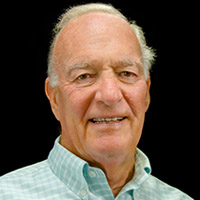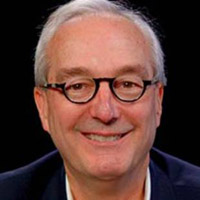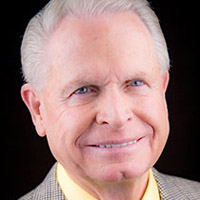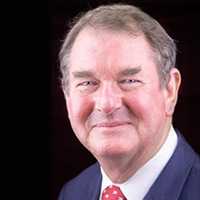Pushing the Boundaries of Science and Technology since 1973: Terrific Insight from Dr. Lee Hood

See Dr. Lee Hood‘s recent interview with Alan Olsen: about pushing the boundaries of science and technology: https://youtu.be/60DDZ0MJ8QE
Dr. Lee M. Hood is best known for his development of technologies which have enabled the advancement of predictive, preventative medicine. Dr Hood’s journey began at a young age, when he was an assistant professor of molecular immunology at California Institute of Technology in 1973. After being appointed Chief Strategy Officer for the Institute for Systems Biology in 2000, he was invited to become its Chief Science Officer.
During his career, Dr Hood has been at the forefront of pushing the boundaries of scientific and social issues. He has developed several technologies which have enabled predictive drug discovery and systems medicine, including systematically perturbed metabolic networks and automated DNA sequencing.
In addition, he has created the groundbreaking technology of free-living cell sorting, which allows for the isolation of single cells that can be studied to gain insight into processes such as gene expression and transcriptional control.
Science, the Human Genome Project
One of Dr Hood’s greatest achievements has been his involvement in the Human Genome Project. He developed one of the first automated DNA sequencers, which enabled the initial physical map and sequencing of the human genome. This contribution was essential for identifying and locating genes on human chromosomes and enabled scientists to have a better understanding of how our genetic makeup impacts our health and health care system.
Dr Hood has also been instrumental in developing technologies which are helping to revolutionize medical diagnostics and treatment. He has developed color-coded probe pairs that can detect multiplexed measurements of gene expression, enabling the discovery of disease-perturbed networks. This technology is being employed in three clinical trials for early detection of breast cancer, using proteomic analyses to predict the probability of metastasis.
Systems Thinking and Systems Approach: Keys for Optimal Wellness
Dr Hood’s systems thinking approach has been integral in developing technologies which are enabling precision medicine, as well as predicting and managing health trajectories. He believes that by focusing on a systems approach, such as integrated genomic and proteomic analyses, one can identify the underlying causes of disease and optimize wellness.
Dr Hood is also an advocate for utilizing data collected from whole genome sequencing and advanced technologies such as mass spectrometry to develop machine learning-based predictive models that can lead to better health outcomes.
Complex Protein Mixtures Tool
Dr Hood also developed a tool for the analysis of complex protein mixtures that has been instrumental in three clinical trials. This technology allows for the direct, multiplexed measurement of protein activities, which can be used to identify disease-perturbed networks and systems approaches. It is also an invaluable tool for precision medicine and can be used to identify early signs of disease in order to optimize wellness.
Institute for Systems Biology (ISB)
In 2000, Dr Hood co-founded the Institute for Systems Biology (ISB), which is a research organization dedicated to understanding how global systems are affected by changes in individual components. The ISB uses data collected from many sources, such as high throughput technologies and computational analyses, to develop models that can be used to inform decisions about our health, such as early detection.
Dr Hood’s team at the ISB has also developed Integrated Genomic, Proteomic and Metabolic Analyses (IGPMA) to further advance our understanding of disease processes, and is utilizing machine learning to develop predictive models for optimizing wellness.
Dr Hood continues to make significant contributions to science and technology by pushing the boundaries of our understanding. His approach to systems medicine and use of new technologies, such as whole genome sequencing, mass spectrometry, color-coded probe pairs, automated DNA sequencers and data clouds is helping us to gain further insight into how diseases develop and progress. This research will no doubt continue to shape the future of personalized medicine.
Technology, Molecular Biotechnology
In addition to his work in systems medicine, Dr Hood also works on the development of molecular biotechnology. In 2000, he established the department of Molecular Biotechnology at the University of Washington, which introduces research from cross disciplinary biology, chemistry and computer science.
He is also actively involved in several projects aimed at developing technologies for researching Alzheimer’s and cancer, as well as developing new antibiotics and antivirals to combat emerging diseases.
Through his work, Dr Hood has set the stage for a future of precision medicine, where treatments are personalized to an individual’s genetic makeup and lifestyle. His vision is also one of optimizing wellness through a better understanding of how our bodies function at the molecular level.
By leveraging advances in data science, machine learning and systems biology he has created an environment for research that is driving us closer to personalized medicine at a faster pace than ever before. His passion and dedication to his field have had a profound impact on the way we think about health and wellness. He continues to set the bar high for innovators and researchers alike, pushing us all to uncover new insights into how our bodies work and the science behind disease.
Dr Hood’s passion and dedication to his field have earned him numerous awards and honorary doctorates throughout his career. He has been inducted into both the National Academy of Sciences and the National Academy of Engineering and has received numerous awards from organizations such as the American Association for the Advancement of Science, the National Institutes of Health, and the Institute of Medicine. He is a true pioneer in the field of systems medicine and personalized health care, and his work will continue to shape our understanding of disease and wellness for years to come.
To view more content like this, click here to subscribe to our YouTube channel
And click here to receive our FREE Newsletter.


Thank You!

What Venture Capitalists Want | Wally Hawley
About Wally Hawley Wally Hawley is a co-founder of InterWest Partners (1979), one of the larger venture capital partnerships in the United States, formed to make equity investments in diversified U.S. growth companies. His prior experience includes seven years as President of SHV North America Holding Corp., a wholly owned subsidiary of a Netherlands…
Venture Capital’s Role in Nuclear Science | Ray Rothrock
About Ray Rothrock As a venture capitalist for more than two decades, Ray has assisted entrepreneurs in achieving their dreams and produced outstanding financial returns for his limited partners. He has personally discovered, created and guided more than 50 companies in the Venrock portfolio through their early stages of formation and emerging growth. Beginning…
Doing the Tough Things First | Ray Zinn
About Ray Zinn Ray Zinn is a co-founder of the Company Micrel and has been its President, Chief Executive Officer and Chairman of its Board of Directors since the Company’s inception in 1978. As our Chief Executive Officer, Mr. Zinn gives the Board of Directors insight and in-depth knowledge of the semiconductor industry and…
Todays China | Nicholas Hope
About Nicholas Hope Nicholas Hope is the Director of the Stanford Center for International Development (SCID). He also directs SCID’s China research program. His current research is private enterprise development in China and progress of reforms in China, especially in the financial sector. His interests are in East Asian economies, especially China and Indonesia,…




